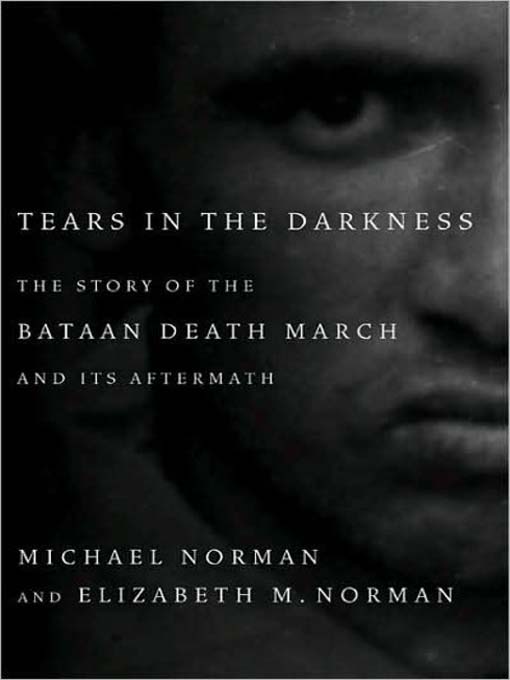
Tears in the Darkness
The Story of the Bataan Death March and Its Aftermath
فرمت کتاب
audiobook
تاریخ انتشار
2009
نویسنده
Michael Prichardناشر
Tantor Media, Inc.شابک
9781400181674
کتاب های مرتبط
- اطلاعات
- نقد و بررسی
- دیدگاه کاربران
نقد و بررسی

The Japanese attacked U.S. bases in the Philippine Islands on December 7, 1941, the same day as the Pearl Harbor raid. The poorly trained American and Philippine troops retreated to the close-by peninsula of Bataan, eventually surrendering to the Japanese. Hell began for these soldiers on a sixty-mile march to a prison camp and, for those who survived it, continued during their next three years of internment. Narrator Michael Prichard has a way of sounding authentic with foreign languages simply by sounding so sure of himself. He does this with the abundant Japanese names and places herein without trying to imitate a native speaker or create characters. Prichard's serious presence fades into the background as the authors' tales of brutality, disease, starvation, and death take the spotlight. J.A.H. (c) AudioFile 2009, Portland, Maine

April 20, 2009
This grimly absorbing history revisits the worst ordeal Americans experienced during WWII. Michael Norman, a former New York Times
reporter, and Elizabeth Norman (Women at War
) pen a gripping narrative of the 1942 battle for the Bataan peninsula in the Philippines, the surrender of 76,000 Americans and Filipinos to the Japanese and the infamous death march that introduced the captives to the starvation, dehydration and murderous Japanese brutality that would become routine for the next three years. Focusing intermittently on American POW Ben Steele, whose sketches adorn the book, the narrative follows the prisoners through the hell of Japanese prison and labor camps. (The lowest circle is the suffocating prison ship where men went mad with thirst and battened on their comrades’ blood.) The authors are unsparing but sympathetic in telling the Japanese side of the story; indeed, they are much harder on the complacent, arrogant American commander Douglas MacArthur than on his Japanese counterpart. There’s sorrow but not much pity in this story; as all human aspiration shrivels to a primal obsession with food and water, flashes of compassion and artistic remembrance only occasionally light the gloom. 8 pages of b&w illus., illus. throughout; maps.

























دیدگاه کاربران